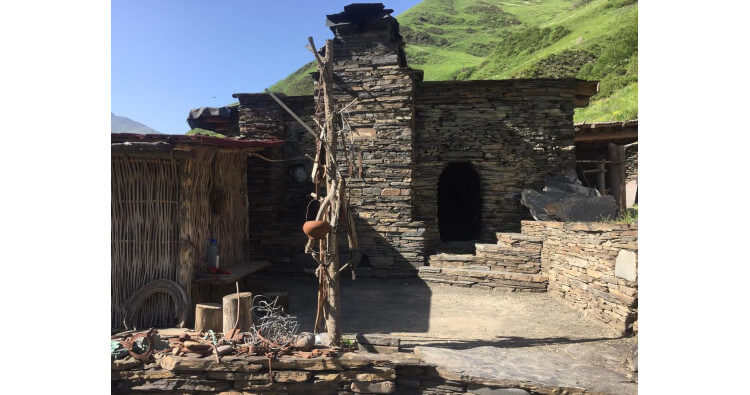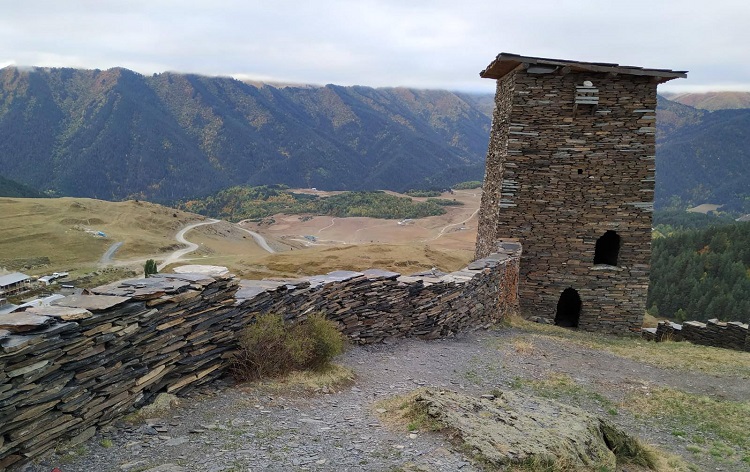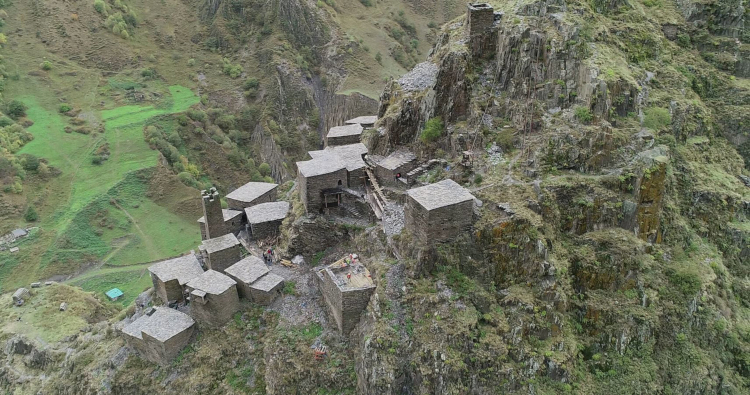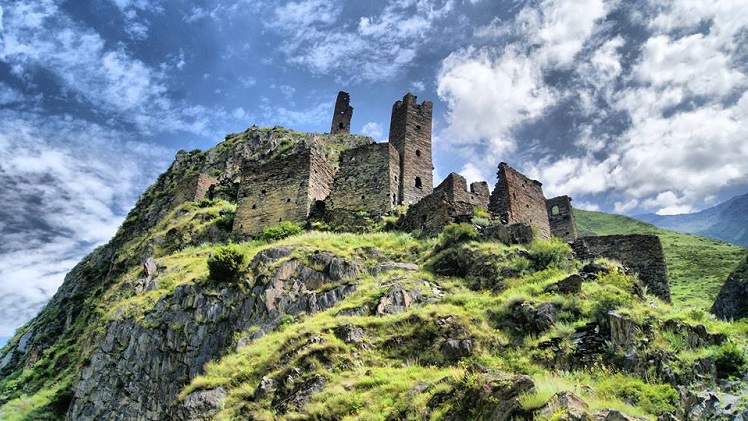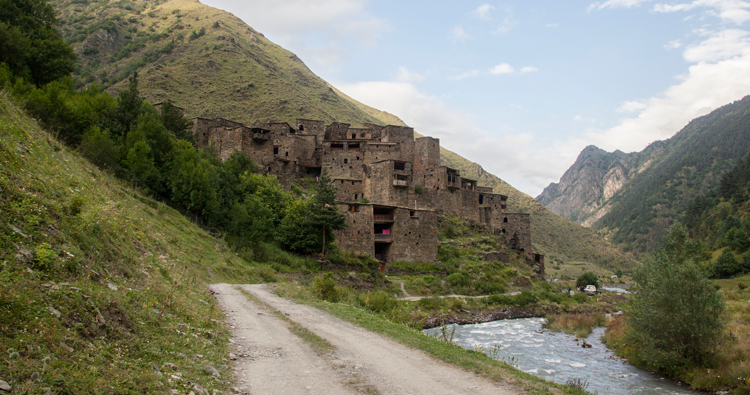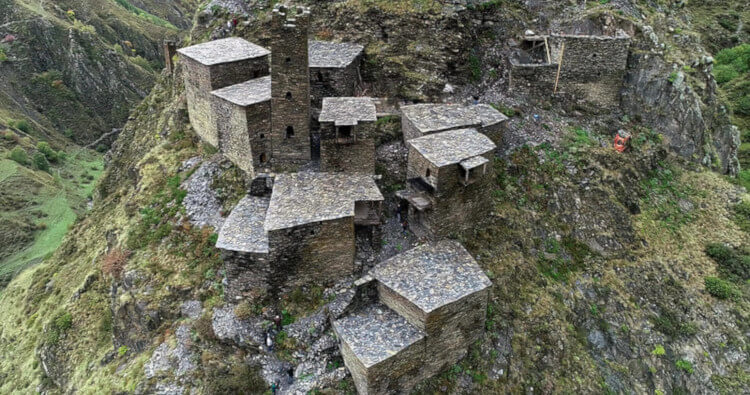Mutso medieval village restoration project distinguished with Georgian Union of Architects award
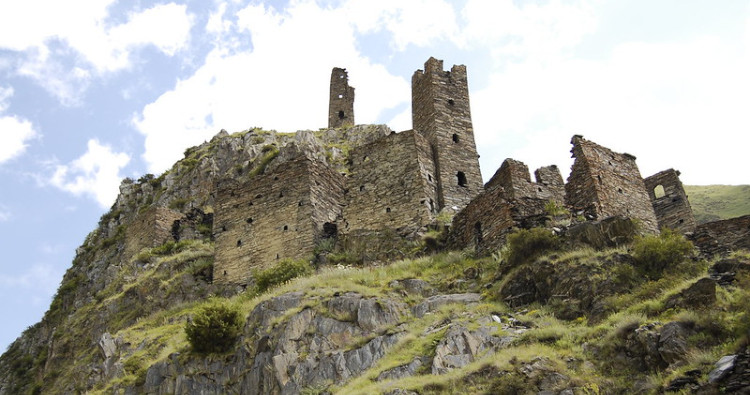
Mutso is comprised of defensive and residential structures arranged on hilltop terraces above the Mutso-Ardoti Valley in Georgia's north. Photo: Andrzej Wójtowicz on Flickr.
The European Heritage Award-winning restoration project of the highland village of Mutso in Georgia's north has been distinguished with another prize, as the Georgian Union of Architects honoured the complex effort with its own selection.
The National Agency for Cultural Heritage Preservation of Georgia, Cartu Fund and Architex company were awarded prizes from the organisation in recognition of their work on the multi-year project that started in 2014 and saw the crumbling, deserted village rehabilitated through difficult restoration work.
In addition to the union's awards for the three parties, a special award for particular contribution to the restoration was posthumously presented to the late project leader Ioseb Bandzeladze and members of the team that developed plans for the rehabilitation of the historical location.
Marking the occasion, the architectural organisation and the heritage agency also announced the prize for restoration projects would be presented annually.
Find out the history and challenges of the complex project for restoring Mutso in a documentary about the award-winning effort:
The Mutso project has been called "one of the most complex" in the history of cultural site restorations in Georgia, with the high-lying, difficult-to-access village preserved in work that reinforced its stone-built Medieval observation towers, restored facades, roofs and stairs, among other constructions.
Located in the province of Khevsureti, the fortified village served as a strongpoint overlooking northern entry roads into the Georgian territory. The small settlement features around 30 fortified structures and four defensive towers arranged on three terraces on hills above the Mutso-Ardoti Valley, 1,880 metres above sea level.
The remote village was almost completely deserted a century ago while the remaining residents continued to slowly vacate the village due to absence of opportunities and lack of infrastructure.
Launched six years ago, the restoration project received plaudits from Europa Nostra, a major cross-European organisation of cultural heritage, and won the organisation's award for conservation in 2019.
 Tweet
Tweet  Share
Share
